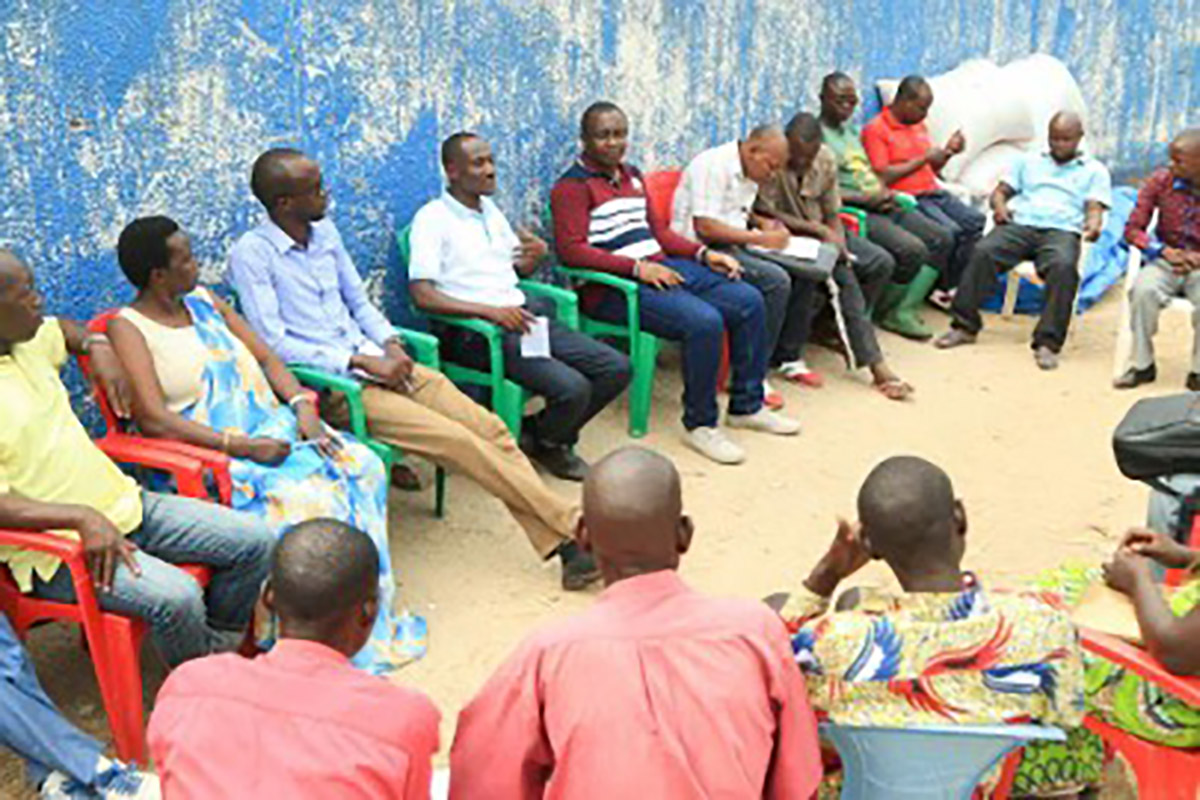Youth development on stream but needs more support
February 1st, 2011Certain youth advocates last week raised questions about the policy programmes and management of the youth portfolio and wanted it taken away from Olivia “Babsy” Grange, Minister of Youth Sports and Culture. It was surprising that the youth advocates did not investigate before they made their ill-informed statements. If they had they would have found that a great deal of important work has been done or is being done in youth development, but little is published. Not much information was published about the programmes.
The main focus of the media has been on sports, women, gender affairs and special events. The youth advocates should have at least ascertained from the ministry what is happening in its youth development programmes before criticising Grange and Parliamentary Secretary Senator Warren Newby who has responsibility for the management of the National Youth Policy and programmes under the supervision of the minister.
A few days after the youth advocates spoke, I visited the ministry to get documentary evidence of its work and there was plenty of it. The National Centre for Youth Development is carrying out several programmes, including living environment, employment and entrepreneurship, education and training, empowerment and participation, care, protection and health.
Under living environment, the national strategy is to facilitate and promote a culture of supportive youth development and strengthening of youth programmes that cater to youth, including youth living on the streets, youth exposed to domestic violence, youth living alone, single-parent households headed by youth and youth in rural, underserved parishes.
Strategy is one thing. What about achievements? In the area of living environment, the inter-ministerial and multi-function teams on youth development were re-launched and co-chairs were assigned to each focal area of the National Youth Policy, partnership with the United Nations Fund for Population Activity was formed and additional support from United Nations International Children’s Fund was given in the outsourcing of musical instruments to four youth information centres. A national youth survey was also launched. Also provided was technical youth development support to key stakeholders in developing strategies to tackle truancy, crime and violence in communities.
For underemployment and entrepreneurship, the strategy is to foster an environment conducive to the creation of opportunities for self-employment of youth. Key action has to be taken to reduce the level of youth unemployment rate and increase the number of youth entrepreneurs through capacity building, training and access to youth business trust developed. A teenage employability skills training project was launched in St Mary, aimed at reaching 2200 fifth and sixth form students by the end of March this year. There is partnership with the Scientific Research Council to implement the rural youth employment projects in the parishes of St Ann, Manchester, Trelawny and St Thomas. A youth entrepreneurship registry programme has been launched in St Catherine in partnership with the Rural Agricultural Development Agency and the Social Development Commission through the Portmore Youth Information Centre.
As far as education and training is concerned, the strategy is to foster participation of students in the administration of their institutions and promote schools as community empowerment points and safe zones. Six hundred students have received educational materials through the donate-to-education campaign, 20 schools received computers, 400 student counsellors have been trained in advocacy, leadership, peer counselling and student council responsibilities.
With respect to the empowerment and participation project, the achievements include the utilisation of a total of 290,000 young people in youth information centres. Of this number, 25,000 are new users, and acquisition of sites for centres in Spanish Town, May Pen, Falmouth and Hanover has been completed. A total of 13 sites have been identified for development of satellite centres and five have already been acquired. Four centres received musical instruments amounting to $1 million from UNICEF for the development of creative art programmes in the centres.
In the area of youth care and protection, a national street youth awareness and consultation programme has been launched, mentorship programmes have been implemented at the Granville Place of Safety and Windsor Girls’ Home, 150 young men and women are involved in peer mentorship programmes at the YMCA, Spanish Town; 55 young men are involved in a mentorship programme at the National Inter-School Brigade in St Catherine and partnership has been established with Hush for Guns, Youth Crime Watch Jamaica and the Correctional Services for the implementation of life skills, literacy and numeracy, welding and creative arts programmes in the Tower Street Adult Correctional Centre, and a National Survey has been carried out to address issues relating to youth
at risk.
The health programme is geared to promote healthy lifestyles through training and provision of spaces and opportunities for young people to become informed and empowered to make the right choices about their health, provide technical support to health authorities in policy development and programme implementation to ensure that young people are fully integrated in service delivery. Under the programme, 55 community-based youth organisations, 128 youth leaders from the parishes of St Ann, Westmoreland, St James, Trelawny, St Elizabeth and Hanover, have been trained in sexual reproductive health. Also there are two youth empowerment officers assigned to focus on health issues relating to youth and 25 officers trained and certified in voluntary counsel. Young people have also contributed to the national HIV/AIDS strategic plan through active participation on the National
AIDS Committee.
However, with all these achievements, there is a lot work still to be done in youth development which is of utmost importance to the country. The Ministry of Finance and the Public Service should treat the development as a priority and provide the necessary funds to move forward. The private sector should also participate to the fullest extent possible, as this development could help to promote social stability which is critical to business.




